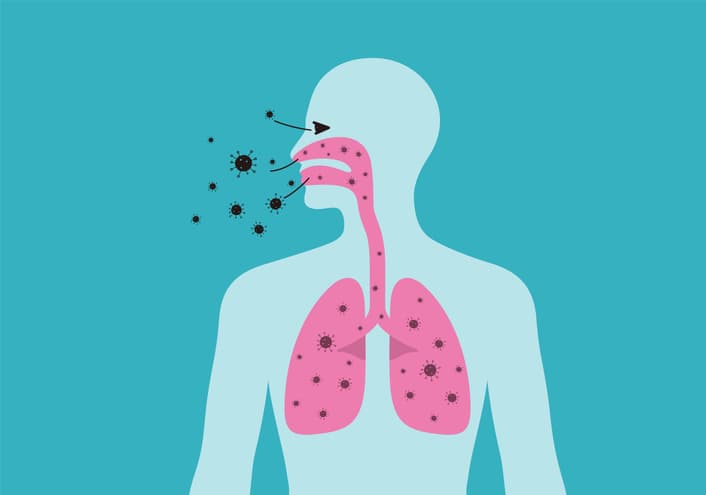Periodontal disease
The most common chronic form is gingivitis, whose bleeding, puffiness and redness come from an organized mass of bacteria called plaque. You may know it can advance into a form called periodontitis. If these conditions are left untreated, however, it can also lead to infections within other parts of the body, such as the lungs.
The nature of oral bacteria
There is a tremendous amount of bacteria in your mouth, and many types are benign. But pathogens are bad news for the oral cavity, according to a report in Oral Diseases, and although it was originally believed the bacteria in your mouth just affected the teeth and gums, research now suggests it can easily spread to other parts of the body. It is the long-term exposure to this bacteria and the resulting inflammation that creates a problem for your gums, and it is this problem that allows it to travel beyond your mouth, resulting in inflammation in other parts of the body.
What makes it worse
Bacteria that cause respiratory diseases like bronchitis and pneumonia may come from the oral cavity, as well as any existing periodontal disease, but poor oral hygiene can allow for an increase in this bacteria before it spreads past the mouth. In other words, the better your mouth care, the healthier your lungs. These bacteria can also accumulate around dental appliances like partials, dentures and bridges. So, just like your teeth, these items need to be cleaned well on a daily basis.
Who’s at risk?
Crowded communities of people in a delicate state of health naturally increase the chances of an illness spreading. The elderly, especially those in nursing or assisted-living centres, are therefore at the greatest risk for developing respiratory diseases from the accumulation of oral bacteria around the teeth. Those with a compromised immune system due to other conditions may be at greater risk for this problem, as well.
How to prevent it
Preventing the problem is straightforward as long as you’re committed to improving good oral hygiene and keeping dental appliances free of pathogenic bacteria. Professional cleanings are also a must. The number of annual cleanings appropriate will vary from person to person, but your dentist or dental hygienist can evaluate your oral health condition and create a plan just for you. If you have already had respiratory problems, see you doctor and discuss coordinating care with your dentist.
